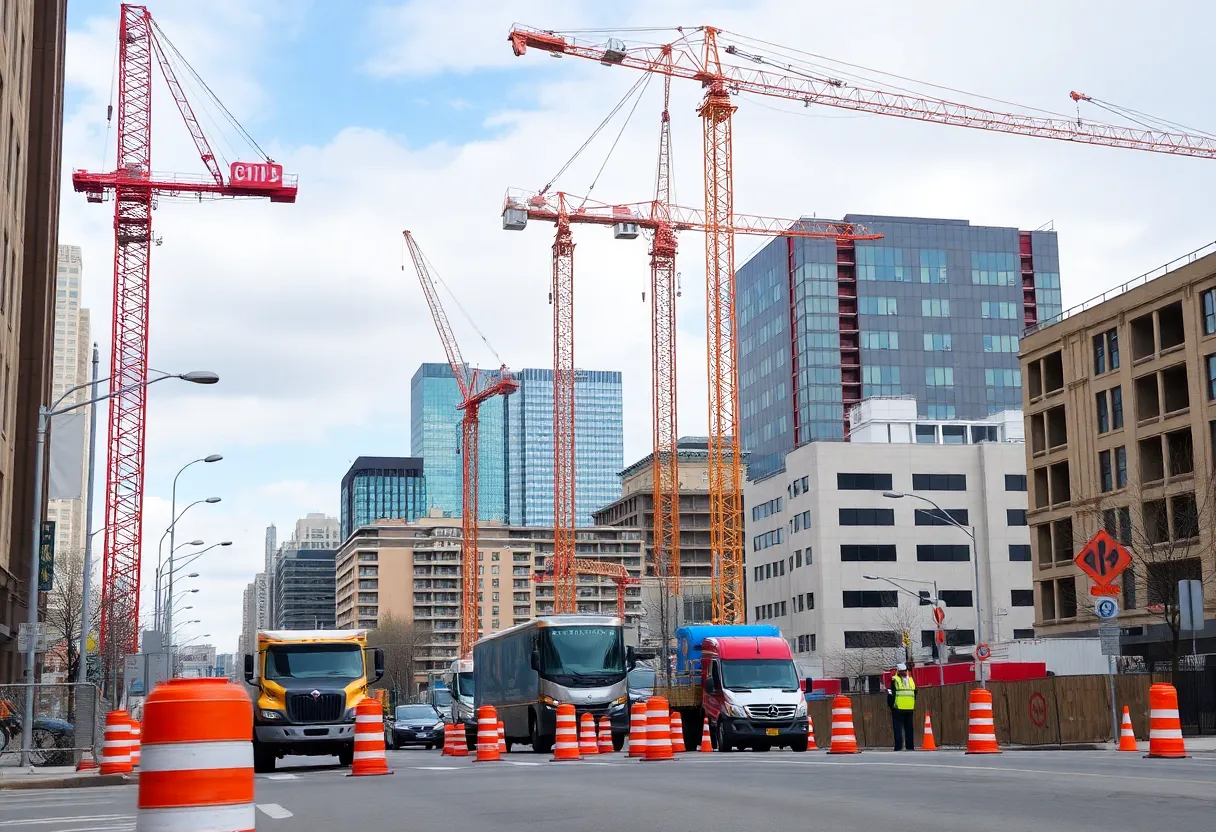News Summary
Michigan is facing significant challenges in its quest to become a leader in electric vehicle battery production. Despite a $1 billion investment and further pledges, recent slowdowns in EV demand have led major automakers like Ford and GM to reduce their factory plans, impacting job creation. State incentives have also seen cuts, leaving startups struggling to secure funding. The community is expressing skepticism towards corporate incentives, highlighting concerns over economic strategies amidst the shifting landscape of EV manufacturing.
Challenges and Setbacks in Michigan’s Electric Vehicle Battery Initiatives
Michigan has been on a spirited journey to become the heart of electric vehicle (EV) battery production in the United States. Over the past three years, the state has swung into action by investing a whopping $1 billion into this growing industry, with another billion pledged to keep the momentum going. However, recent developments have left many scratching their heads as they navigate the tricky roads of economic uncertainties and dipping job prospects.
The Automotive Giants Shift Gears
In the world of automotive manufacturing, demands can change faster than a car’s speedometer can read. Big players like Ford Motor Co. and General Motors Co. have recently pressed pause on their ambitious factory plans. These adjustments are largely a response to an unexpected slowdown in EV demand. For instance, the state was shocked when Ford had to slash its budget for the planned EV battery factory in Marshall—from a high-flying $3.5 billion down to $2.2 billion. On top of that, anticipated jobs at this facility have dipped considerably, going from 2,500 jobs to just 1,700 jobs.
Funding Frustration
The state of Michigan has also cut back on the incentives that were initially promised to Ford, downsizing the original package from over $1 billion to $409.1 million. Of that, only $103 million has made its way to the Marshall project so far. Adding to the frustration, the first project supported by the SOAR initiative in Michigan is now expected to generate jobs only by 2027, leaving many wondering about the timeline that was initially promised.
Struggles for Startups
When it comes to smaller players in the EV battery game, the situation isn’t much better. Our Next Energy (ONE), an electric vehicle battery startup, has hit a rough patch after failing to raise crucial funds. This misstep has forced the company to make difficult decisions, resulting in layoffs and halting progress on their factory in Van Buren. ONE had benefited from around $200 million in state incentives, but with only $70.2 million disbursed so far, concerns are mounting over its future.
International Players and Local Backlash
The landscape isn’t devoid of foreign influence, either. Gotion, a Chinese battery manufacturer, has run into trouble with local communities concerning its plans for a $2.4 billion factory near Big Rapids. Ongoing lawsuits and community opposition have resulted in delays, leaving many local residents anxious about the factory’s future.
Meanwhile, LG Energy Solution has been making its mark with substantial investments in the state while also shifting gears to supply battery cells to Toyota Motor North America from its plant in Lansing. These changes are part of the evolving roadmap the industry is carving out amidst challenges.
Federal Support Amidst Uncertainties
Yet, not all is doom and gloom! The U.S. Department of Energy has acknowledged Michigan’s efforts, announcing a generous $355 million in federal funding for manufacturing projects in the state, aimed explicitly at bolstering EV battery production as part of the Bipartisan Infrastructure Law.
Community Concerns and Public Sentiment
It’s evident that skepticism is growing among residents regarding corporate incentives, especially given the community disruptions and delays tied to these mega-projects. Critics are calling for a reevaluation of the state’s economic strategy as uncertainty looms over the future of EV manufacturing in Michigan. Surprisingly, a recent poll revealed that while a solid 55% of voters still value the importance of competing in EV production, only about one in four are considering purchasing an electric vehicle soon.
Looking Ahead
Economic experts remind everyone that setbacks and delays are commonplace in big projects. It’s too soon to slam the brakes on Michigan’s aspirations in the EV battery market. As challenges abound, the state continues to press forward with its vision of long-term growth in the electric vehicle sector. Only time will tell how Michigan’s road ahead unfolds, but for now, keeping an eye on the changing landscape is more important than ever!
Deeper Dive: News & Info About This Topic
Additional Resources
- Crain’s Detroit Business: Electric Vehicle Battery Projects in Michigan
- Crain’s Detroit Business: Ford Cuts Investment in Battery Plant
- Crain’s Detroit Business: Gotion Faces Community Opposition in Michigan
- Crain’s Detroit Business: LG Energy Solution’s Investments in Michigan
- Wikipedia: Electric Vehicle Battery




